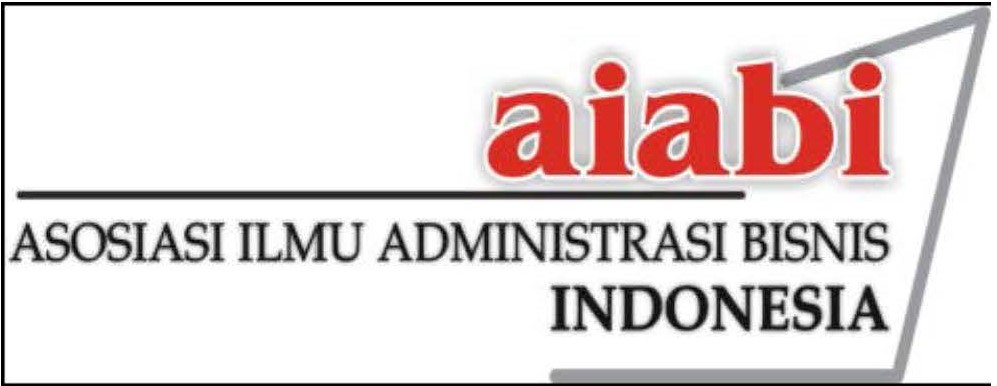PERSEPSI PELUANG KERJA, MINAT DAN PERILAKU WIRAUSAHA MAHASISWA: ANALISIS DARI PERSPEKTIF THEORY OF PLANNED BEHAVIOR
Abstrak
Entrepreneurship among tertiary education graduates is not satisfactory because the current education system makes students tend to be job seekers rather than job creators. The interest in creating jobs from students through entrepreneur is faced with the perception of opportunities to get jobs according to their abilities. This study identify the effect of perceptions of job opportunities and the component of theory of planned behavior on student entrepreneurial interests and behavior. This study sampled 100 undergraduate students from Diponegoro University and used a variance-based structural equation analysis model (SEM-PLS) with Warp PLS 6.0 software. The results obtained from this study indicate that the perceived employability has a significant negative effect on the emergence of entrepreneurial behavior, but does not affect the entrepreneurial intention. Components of the theory of planned behavior, attitudes have a significant positive effect on entrepreneurial interest, subjective norms do not affect both entrepreneurial interest and behavior, while significant behavioral control positively influences both entrepreneurial intention and behavior. The results of this study are expected to be a reference in improving the existing education system at the university level in order to increase graduates choosing entrepreneurial careers.
Wirausaha di kalangan lulusan pendidikan tinggi situasinya belum cukup memuaskan karena sistem pendidikan yang ada saat ini membuat mahasiswa cenderung menjadi pencari kerja bukan pencipta lapangan kerja. Minat menciptakan lapangan kerja melalui wirausaha oleh mahasiswa juga dihadapkan dengan persepsi peluang untuk mendapatkan pekerjaan sesuai dengan kemampuan mereka. Penelitian ini bermaksud mengidentifikasi pengaruh persepsi peluang kerja dan komponen theory of planned behavior terhadap minat maupun perilaku wirausaha mahasiswa. Penelitian ini mengambil sampel dari mahasiswa S1 Universitas Diponegoro sebanyak 100 orang dan menggunakan analisis model persamaan struktural berbasis varian (SEM-PLS) dengan software Warp PLS 6.0. Hasil yang diperoleh dari penelitian ini menunjukkan bahwa persepsi peluang kerja berpengaruh signifikan negatif terhadap munculnya perilaku wirausaha, namun tidak berpengaruh terhadap minat wirausaha. Komponen theory of planned behavior yaitu sikap hanya signifikan berpengaruh positif terhadap minat wirausaha, norma subjektif tidak berpengaruh baik pada minat maupun perilaku wirausaha, sedangkan kontrol perilaku signifikan positif mempengaruhi baik minat maupun perilaku wirausaha. Hasil penelitian ini diharapkan bisa menjadi acuan dalam memperbaiki sistem pendidikan yang ada di tingiat universitas agar menambah lulusannya memilih karir wirausaha.
Kata Kunci
Teks Lengkap:
PDFReferensi
Afriyanti, T. W, Deliana, M., & Rahardjo, K. 2019. Influence of Business Education on Entrepreneurial Intention With Feasibility And Entrepreneurial Self-Efficacy As Intervening Variables. Jurnal Bisnis dan Manajemen, 20(2), 125-135.
Ajzen, I. 1991. The Theory Of Planned Behaviour. Organizational Behavior and Human Decision Processes. Vol. 50No.2, pp.179-211
Ajzen, I. (2011). The theory of planned behaviour: reactions and reflections. Psychology & health, 26(9), 1113
Aloulou, W. J. 2018. Examining entrepreneurial orientation’s dimensions–performance relationship in Saudi family businesses. Journal of family business management
Atitsogbe, K. A., Mama, N. P., Sovet, L., Pari, P., & Rossier, J. 2019. Perceived employability and entrepreneurial intentions across university students and job seekers in Togo: The effect of career adaptability and self-efficacy. Frontiers in psychology, 10, 180.
Badan Pusat Statistik. 2019. Tingkat Pengangguran Terbuka.
Bagozzi, R. P., & Yi, Y. 1989. The degree of intention formation as a moderator of the attitude-behavior relationship. Social psychology quarterly, 266-279
Burger, L., Mahadea, D., & O'Neill, C. 2004. Perceptions of entrepreneurship as a career option in South Africa: An exploratory study among grade 12 learners. South African Journal of Economic and Management Sciences, 7(2), 187-205.
Chin, W. W. 1998. Commentary: Issues and opinion on structural equation modeling.
Darmanto, S., & Yuliari, G. 2018. Mediating role of entrepreneurial self efficacy in developing entrepreneurial behavior of entrepreneur students. Academy of Entrepreneurship Journal, 24(1), 1-14.
Davey, T., Plewa, C., Nabi, G., Liñán, F., & Struwig, M. 2011. Entrepreneurship perceptions and career intentions of international students. Education+ Training.
Dendup, T., & Acharja, I. L. 2017. Effect of individual factor on entrepreneurship intention among undergraduate students in Bhutan. World Journal of Business and Management, 3(2), 1-12.
Fazaniza .E. 2016. Fresh Grads Face tough job market. The sun daily, http: //www.thesundaily.my/news/1660165
GEM. 2018. Global Entrepreneurship Monitor
/2018. In Global Entrepreneurship
Monitor. Retrieved from
http://www.gemconsortium.org/report/
Ghozali, I. 2014. Structural Equation Modeling. Metode Alternatif dengan Partial Least Square (PLS). Edisi 4. Semarang: Badan Penerbit Universitas Diponegoro
Hayton, J. C., & Cholakova, M. 2012. The role of affect in the creation and intentional pursuit of entrepreneurial ideas. Entrepreneurship theory and practice, 36(1), 41-67.
Kaushik, K., Jain, N. K., & Singh, A. K. 2018. Antecedents and outcomes of information privacy concerns: Role of subjective norm and social presence. Electronic Commerce Research and Applications, 32, 57-68.
Kroon, J., De Klerk, S., & Dippenaar, A. 2003. Developing the next generation of potential entrepreneurs: co-operation between schools and businesses?. South African Journal of Education, 23(4), 319-322.
Krueger, N., & Carsrud, A. 1993. Entrepreneurial Intentions: Applying the Theory of Planned Behavior. Entrepreneurship & Regional Development. Vol. 5, pp.315 330
Lortie, J., & Castogiovanni, G. 2015. The theory of planned behavior in entrepreneurship research: what we know and future directions. International Entrepreneurship and Management Journal, 11(4), 935–957. doi:10.1007/s11365-015-0358-3
Louis, S.K., Blumenthal, D., Michael E. G., & Stoto, M.A.1989. Entrepreneurs in Academe: An Exploration of Behaviors among Life Scientists. Administrative Science Quarterly, Vol. 34, No. 1 (Mar., 1989), pp. 110-131
Nabi, G., & Holden, R. 2008. Graduate entrepreneurship: intentions, education and training. Education+ training.
Otache, I. 2019. Entrepreneurship education and undergraduate students’ self-and paid-employment intentions. Education+ Training.
Rahayu, S. M., Ramadhanti, W., & Widodo, T. M. 2018. Analisis Pengaruh Gender Direksi dan Komisaris, Manajemen Laba, Serta Kinerja Perusahaan Terhadap Kompensasi Manajemen Puncak di ASEAN. Deepublish.
Rauch, A., & Hulsink, W. 2015. Putting entrepreneurship education where the intention to act lies: An investigation into the impact of entrepreneurship education on entrepreneurial behavior. Academy of management learning & education, 14(2), 187-204.
Shaheen, N., & AL-Haddad, S. 2018. Entrepreneurial self-efficacy and entrepreneurial behavior. International Journal of Development and Sustainability, 7(10), 2385-2402.
Sarwono, J. 2016. Membuat Skripsi, Tesis dan
Disertasi dengan Partial Least Square
SEM (PLS - SEM). Yogyakarta. Penerbit
Andi
Şen, H., Yılmaz, V., & Ari, E. 2018. Factors affecting the entrepreneurial intentions of women entrepreneur candidates: A structural equation model. Journal of Business Research Turk, 10(1), 275-293.
Setiadi, N. J., Puspitasari, D. M., & Merginawati, R. 2012. Differences In Business Ethical Perceptions Between Sales People And Business Students. International Conference on Business, Entrepreneurship and Management 2012, San Beda College.
Tsordia, C., & Papadimitriou, D. 2015. The role of theory of planned behavior on entrepreneurial intention of Greek business students. International Journal of Synergy and Research, 4(1)
Vargas, R., Sánchez-Queija, M. I., Rothwell, A., & Parra, Á. 2018. Self-perceived employability in Spain. Education+ Training.
Yurtkoru, E. S., Kuşcu, Z. K., & Doğanay, A. 2014. Exploring the antecedents of entrepreneurial intention on Turkish university students. Procedia-Social and Behavioral Sciences, 150, 841-850.
Yusof, N., & Jamaluddin, Z. 2017. Graduate employability and preparedness: A case study of University of Malaysia Perlis (UNIMAP), Malaysia. Geografia-Malaysian Journal of Society and Space, 11(11)
DOI: https://doi.org/10.24198/adbispreneur.v5i2.27300
Refbacks
- Saat ini tidak ada refbacks.









